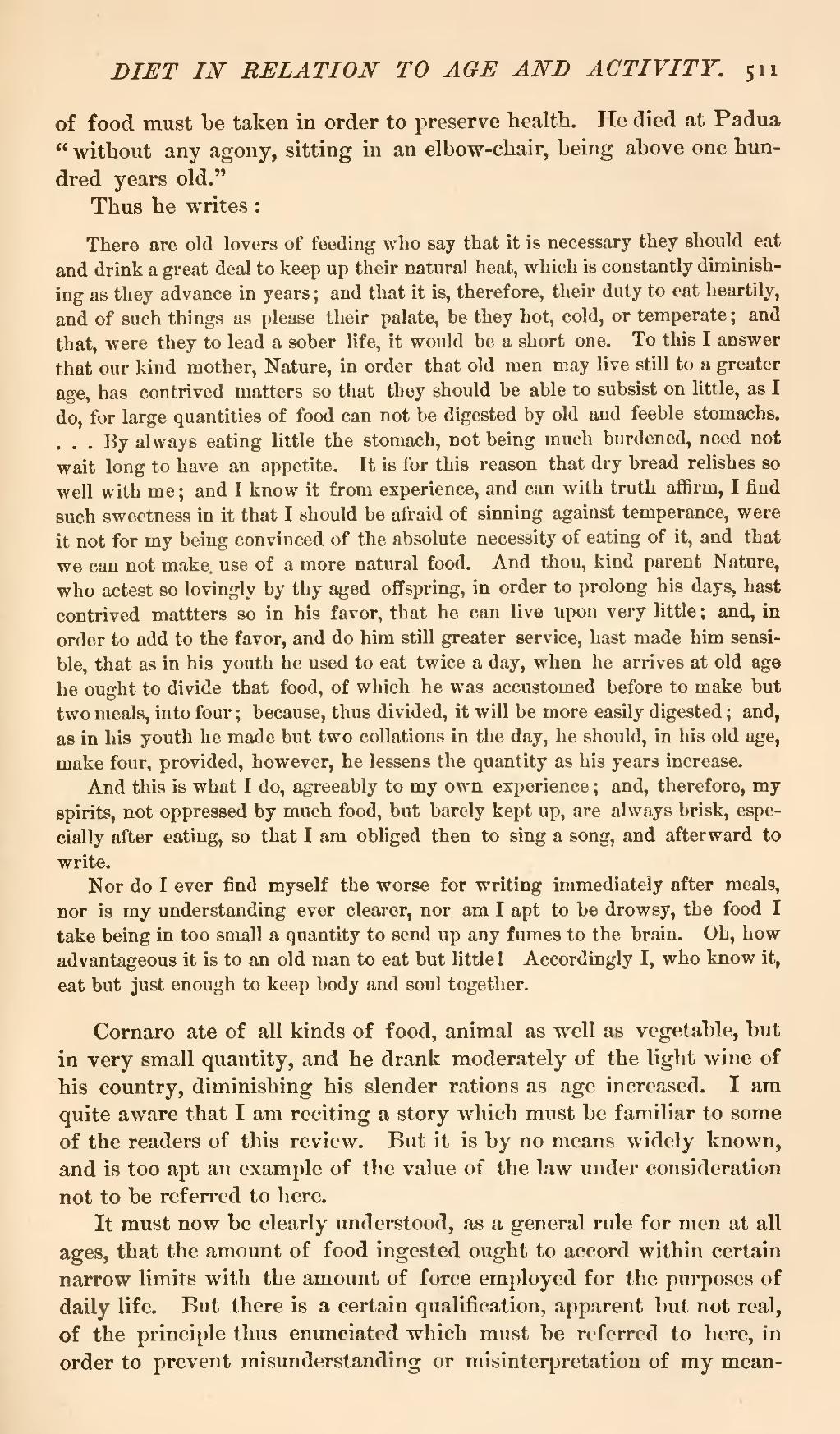DIET IN RELATION TO AGE AND ACTIVITY.
511
of food must be taken in order to preserve health. He died at Padua "without any agony, sitting in an elbow-chair, being above one hundred years old."
Thus he writes:
There are old lovers of feeding who say that it is necessary they should eat and drink a great deal to keep up their natural heat, which is constantly diminishing as they advance in years; and that it is, therefore, their duty to eat heartily, and of such things as please their palate, be they hot, cold, or temperate; and that, were they to lead a sober life, it would be a short one. To this I answer that our kind mother, Nature, in order that old men may live still to a greater age, has contrived matters so that they should be able to subsist on little, as I do, for large quantities of food can not be digested by old and feeble stomachs.... By always eating little the stomach, not being much burdened, need not wait long to have an appetite. It is for this reason that dry bread relishes so well with me; and I know it from experience, and can with truth affirm, I find such sweetness in it that I should be afraid of sinning against temperance, were it not for my being convinced of the absolute necessity of eating of it, and that we can not make, use of a more natural food. And thou, kind parent Nature, who actest so lovingly by thy aged offspring, in order to prolong his days, hast contrived mattters so in his favor, that he can live upon very little; and, in order to add to the favor, and do him still greater service, hast made him sensible, that as in his youth he used to eat twice a day, when he arrives at old age he ought to divide that food, of which he was accustomed before to make but two meals, into four; because, thus divided, it will be more easily digested; and, as in his youth he made but two collations in the day, he should, in his old age, make four, provided, however, he lessens the quantity as his years increase.
And this is what I do, agreeably to my own experience; and, therefore, my spirits, not oppressed by much food, but barely kept up, are always brisk, especially after eating, so that I am obliged then to sing a song, and afterward to write.
Nor do I ever find myself the worse for writing immediately after meals, nor is my understanding ever clearer, nor am I apt to be drowsy, the food I take being in too small a quantity to send up any fumes to the brain. Oh, how advantageous it is to an old man to eat but little! Accordingly I, who know it, eat but just enough to keep body and soul together.
Cornaro ate of all kinds of food, animal as well as vegetable, but in very small quantity, and he drank moderately of the light wine of his country, diminishing his slender rations as age increased. I am quite aware that I am reciting a story which must be familiar to some of the readers of this review. But it is by no means widely known, and is too apt an example of the value of the law under consideration not to be referred to here.
It must now be clearly understood, as a general rule for men at all ages, that the amount of food ingested ought to accord within certain narrow limits with the amount of force employed for the purposes of daily life. But there is a certain qualification, apparent but not real, of the principle thus enunciated which must be referred to here, in order to prevent misunderstanding or misinterpretation of my mean-
